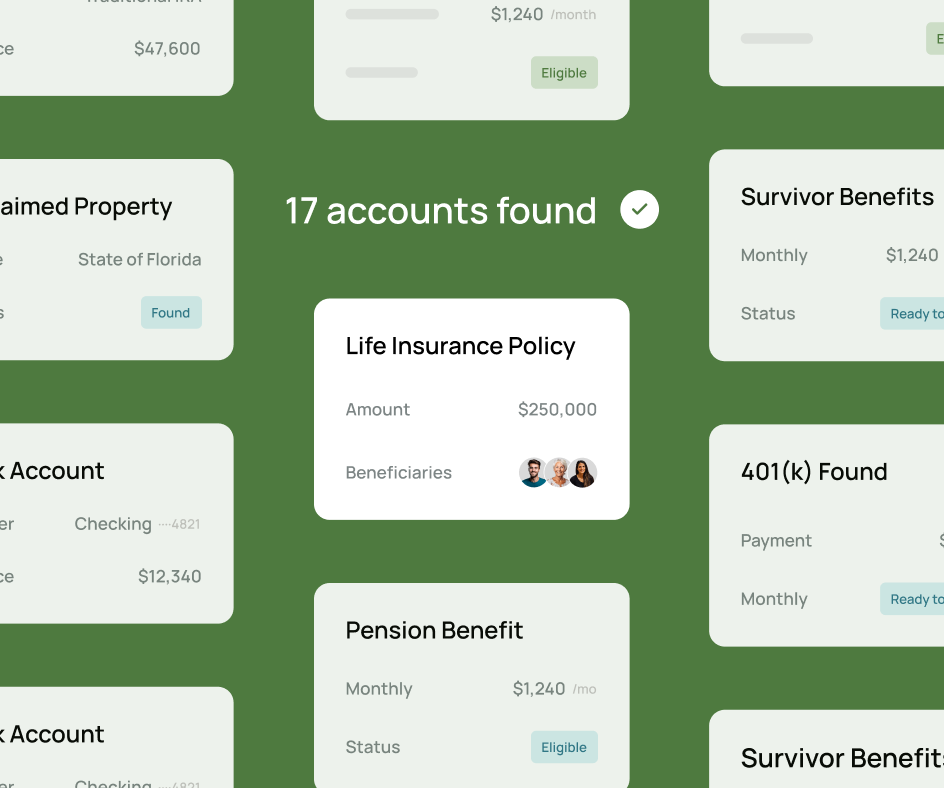Knowing how to notify banks after someone dies is a crucial step in settling their estate. While grieving a loss, it’s easy to overlook financial details—but informing banks and closing accounts quickly helps prevent fraud, stops unnecessary charges, and ensures a smoother legal process. This guide walks you through each step so you can handle your loved one’s financial affairs with clarity and confidence.
{{blog-cta-financial}}
Why It’s Important to Notify Banks of a Death
Banks must be formally informed of a person’s death to freeze the account and prevent unauthorized access or transactions. Until a bank is notified, automatic payments may continue, accounts may accrue fees, and identity thieves may find an opportunity to exploit the deceased’s information. In some cases, joint accounts or payable-on-death accounts might pass directly to a survivor, but for individual accounts, proper legal steps are necessary.
Failure to notify banks in a timely manner after someone dies can lead to a variety of consequences:
- Unauthorized access or fraud: If someone continues to use the deceased's debit card or withdraw funds, even with good intentions (e.g., to pay bills), it can be considered fraud.
- Estate settlement delays: Funds in accounts that remain open may become difficult to claim, delaying the probate process.
- Additional fees or complications: Unattended accounts may accumulate fees or become dormant, adding complications to the estate’s management.
Being proactive and organized can help you avoid these issues and ensure your loved one’s financial matters are closed respectfully and legally.
Step-by-Step Guide to Notifying Banks and Closing Accounts
1. Obtain the Death Certificate
Before any bank will discuss a deceased person’s account, you must provide a certified copy of the death certificate. It's wise to request multiple certified copies (typically 5–10), as many institutions including banks will require an original.
2. Identify All Bank Accounts
Gather information about all the financial institutions your loved one had relationships with. This includes:
- Checking and savings accounts
- Certificates of deposit (CDs)
- Safe deposit boxes
- Investment accounts held at banks
You can find this information by reviewing mail, emails, tax returns, or using the deceased’s personal records.
3. Contact Each Bank
Reach out to each bank individually to notify them of the death. Ask for their specific requirements for closing or transferring accounts. Typically, banks will request:
- A certified copy of the death certificate
- Your identification
- Legal documents proving your authority (more on this below)
Some banks may allow this process to begin online or over the phone, but in many cases, a visit to a branch in person may be required.
4. Provide Proof of Authority
To act on the deceased's behalf, you'll need legal authority:
- Executor or administrator of the estate: If there is a will, the named executor must be formally appointed by a probate court.
- Letters testamentary or letters of administration: These documents, issued by the court, prove that you are authorized to manage the estate.
Without this authority, banks cannot legally allow you to close or manage accounts.
5. Close the Accounts or Transfer Funds
Once the bank verifies your identity and authority, they will freeze the accounts to prevent further activity and then process closure or transfer of funds according to estate laws. Depending on the account type:
- Joint accounts may automatically pass to the surviving holder.
- Payable-on-death (POD) accounts will go to the named beneficiary, bypassing probate.
- Individual accounts will typically require probate before funds can be distributed.
Make sure to obtain a final statement and confirm the closure in writing. Any remaining balance will typically be issued as a check made payable to the estate.
6. Update or Close Online Banking Access
If the deceased used online banking, their digital access should also be disabled. Inform the bank to deactivate any login credentials and ensure that no online transfers or auto-payments continue. Also, update or close associated mobile apps and emails if needed.
7. Secure Safe Deposit Boxes
If your loved one had a safe deposit box, you may need court authorization to access it. Banks generally require:
- The death certificate
- Proof of your authority
- Possibly a court order, depending on the jurisdiction
Contents of the box should be inventoried and handled according to the will or probate instructions.
{{blog-cta-financial}}
Consequences of Not Closing Accounts Properly
Leaving a deceased person’s bank accounts open can create multiple risks:
- Identity theft: Deceased individuals are prime targets for fraudsters. It’s important to take early action to prevent identity theft.
- Misuse of funds: Well-meaning relatives or caregivers might inadvertently use funds, creating legal issues.
- Complicated probate: The estate could be subject to additional scrutiny or delay if assets aren’t clearly accounted for.
In some cases, banks may eventually declare the account dormant and turn the money over to the state’s unclaimed property division, making recovery more complicated.
Handling a loved one’s financial affairs is never easy, but notifying banks and properly closing accounts is a key responsibility that protects their legacy and helps bring financial closure to their passing. Start with gathering documents, securing legal authority, and contacting each institution promptly. If you’re unsure how to proceed with this or other post-loss estate matters, create a free Elayne account.












































